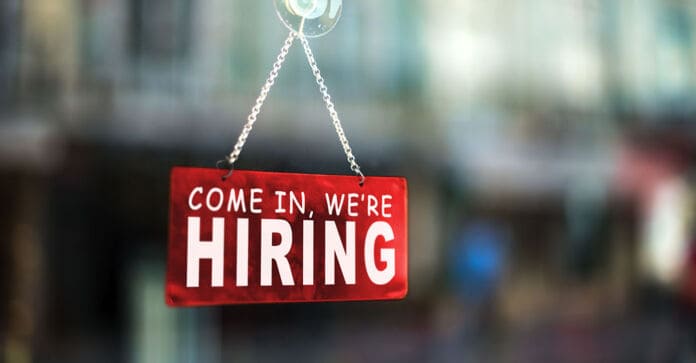
NNPA NEWSWIRE — “This is a moment in time for Americans to move past our divisions to come together and reach our full potential as a nation,” Ken Frazier, the chairman and CEO of Merck and a OneTen founder stated. “Our country’s workforce of the future will be an increasingly diverse one,” Frazier proclaimed.
By Stacy M. Brown, NNPA Newswire Senior National Correspondent
@StacyBrownMedia
OneTen, a coalition of leading executives, said it would work to hire 1 million African Americans into family-sustaining jobs with advancement opportunities over the next decade.
The coalition joined forces to upskill, employ, and advance the hires as a method to chip away at the economic barriers plaguing African Americans.
“This is a moment in time for Americans to move past our divisions to come together and reach our full potential as a nation,” Ken Frazier, the chairman and CEO of Merck and a OneTen founder stated.
“Our country’s workforce of the future will be an increasingly diverse one,” Frazier proclaimed.
“Through the creation of one million jobs for Black Americans over the next ten years, OneTen has the potential to address persistent inter-generational gaps in opportunity and wealth,” Frazier remarked further.
In addition to Frazier, other OneTen founders include Ken Chenault, chairman and managing director of General Catalyst and former chairman and CEO of American Express; Charles Phillips, the managing partner of Recognize and chairman of the Black Economic Alliance; Ginni Rometty, executive chairman and former CEO of IBM; Kevin Sharer, a former chairman and CEO of Amgen and former faculty member at Harvard Business School.
Each of the founders serves on the Board of OneTen – Frazier and Rometty serve as co-chairs.
“In this moment when all Americans share an aspiration for greater economic opportunity, leading executives and employers across industries are taking action to make a meaningful, measurable and lasting systemic impact on racial and economic justice and to create a more equitable society,” the founders noted in a news release.
OneTen connects employers with talent partners, leading non-profits, and other skill-credentialing organizations that support diverse talent development.
“OneTen links our companies with the critical work we know we need to do to improve racial equity in America,” Rometty added.
“This will not only help our individual companies, but by removing structural barriers that have disproportionately hindered Black Americans from joining the middle-class, it will also help lift all Americans,” Rometty continued.
OneTen members include Accenture, ADP, Allstate, American Express, Amgen, Aon, AT&T, Bain & Company, Bank of America, Cargill, Caterpillar, Cisco, Cleveland Clinic, Comcast, Deloitte, Delta Air Lines, Eli Lilly, General Motors, HP Inc., Humana, IBM, Illinois Tool Works, Intermountain Healthcare, Johnson & Johnson, Lowe’s, Medtronic, Merck, Nike, Nordstrom, PepsiCo, Roper Technologies, Stryker, Target, Trane Technologies, Verizon, Walmart and Whirlpool Corporation.
The organization noted that it’s looking forward to welcoming additional members, including small and medium-sized businesses, which power the majority of the U.S. economy.
In a statement, the founders pledged that OneTen would work with employers, education partners, and upskilling partners to design educational and employment solutions.
Together, these partners will better develop, retain, and advance diverse and underrepresented talent, more broadly, but with an explicit commitment to hire or promote Black Americans without four-year degrees, the founders added.
OneTen’s role in the talent ecosystem will be local, reflecting the workforce development landscape, and focus on reducing exclusionary hiring practices, identifying robust and new talent sources, and ensuring that adequate and equitable career pathways for advancement exist.
In January 2021, the organization will begin working with partner employers to improve workplace inclusivity practices and will connect talent providers to partner employers shortly after that, the founders continued.
“By bringing together a coalition of key leaders and asking them to make long-term commitments, we have the ability to change employment practices and help break down systemic barriers opening the door to full participation in our economy,” Rometty said.
Stacy M. Brown is an NNPA Newswire Correspondent

